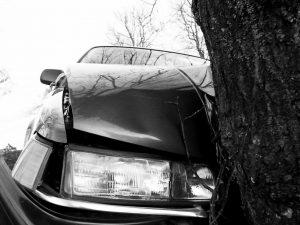What do you do when the cost of your Fort Lauderdale car accident injuries exceed the amount of available insurance coverage? It is possible to collect more, but it will depend on the circumstances of your case and the skill of your personal injury attorney.
First, it’s important to explain Florida’s no-fault system of auto insurance coverage and the minimum coverage rates.
The minimum coverage for an auto accident is $10,000 in personal injury protection (PIP) coverage and $10,000 for property damage liability. PIP is the coverage you buy for yourself, per F.S. 627.736, and ensures a portion of coverage for medical bills and lost wages stemming from a crash. This is paid to you (and/or your passengers) regardless of who was at-fault (assuming you didn’t crash intentionally and weren’t committing a felony at the time of the accident). Your passengers may tap into their own PIP, even if they weren’t driving. You may not be entitled to the full $10,000 in PIP if your injuries did not require immediate treatment.
If your losses exceed that $10,000 or if your injuries meet the “serious injury threshold,” as outlined in F.S. 627.737, you can step outside of the state’s no-fault system and file a liability claim or personal injury lawsuit against the at-fault driver. You will be required to show that the driver was negligent in causing the crash and your injuries, and may need to counter claims of your own fault. (Shared fault won’t strip you of the opportunity to collect damages, but it may reduce the overall amount you can collect.)
Here’s the thing: Florida does not require people to purchase bodily injury liability insurance, which is what would cover others if you cause a crash that results in injury. (There are exceptions if the person has a previous DUI or is operating a taxi or commercial vehicle.) If the driver has uninsured/underinsured motorist (UM/UIM) coverage, then they will also have bodily injury liability coverage that will be at least that much. UM/UIM, which provides excess coverage in case an at-fault driver doesn’t have insurance or enough insurance to cover your damages, is not required in Florida, but highly recommended. So if you have your own UM/UIM policy, you’ll at least be covered up to that amount if the other driver can’t pay. But if the at-fault driver does have liability coverage, you’ll be obligated to pursue that first.
But let’s say that your injuries exceed the policy limits of any of these. As our Fort Lauderdale injury lawyers can explain, insurers aren’t likely to pay an amount that exceeds the designated policy limit. It may be possible to hold the at-fault driver personally liable for your damages and compel them to pay out-of-pocket. Whether this is a worthwhile pursuit will depend on whether the defendant personally has the assets and means to cover your losses.
Although Florida does not require drivers to carry bodily injury liability coverage, there is a Florida Financial Responsibility law that requires an at-fault driver to provide financial coverage of at least $10,000 per person and $20,000 per accident. If the “responsibility” is unmet, one can lose their driving privileges and a court could render a judgment against the to dock their pay, etc.
If your injuries exceed the amount of PIP, bodily injury liability and UM/UIM coverage available, there may be a few options for you to discuss with your lawyer. These include:
- Damages from multiple parties. This is sometimes an option in cases involving a commercial vehicle or Uber driver. It may also apply in cases where there were multiple drivers/vehicles involved or if the driver was drunk (Florida’s dram shop law offers a few options for relief under certain circumstances).
-
Damages directly from the at-fault driver. The trouble with this option is many drivers who aren’t adequately insured also can’t afford to pay for damages. But it is an option worth looking into.
Damages from the vehicle owner. Florida considers motor vehicles to be dangerous instrumentalities. That means the car owner can be deemed vicariously liable for damages, even if they weren’t driving or otherwise negligent.
- Umbrella policy. Umbrella insurance covers all damages in excess of what is provided by the primary auto insurance policy. So for instance, if you have $50,000 in damages and the driver has only $25,000 in bodily injury liability coverage, the umbrella insurance policy would pick up the remaining balance. (You could also collect from your own UM/UIM carrier.)
- Bad Faith insurance. If an insurance company denies a valid claim, refuses to negotiate a settlement or engages in a number of other bad faith business practices, you can take them to court for bad faith insurance and potentially win triple the value of your original claim. Such cases can be complex, and should only be taken on with the help of an experienced injury lawyer.
Call Fort Lauderdale Injury Attorney Richard Ansara at (954) 761-4011. Serving Broward, Miami-Dade and Palm Beach counties.
Additional Resources:
F.S. 627.736, Florida PIP Law
More Blog Entries:
Florida Boating Accidents Cause Lasting Damage, Dec. 1, 2020, Fort Lauderdale Car Accident Lawyer Blog
 Broward Injury Lawyer Blog
Broward Injury Lawyer Blog



